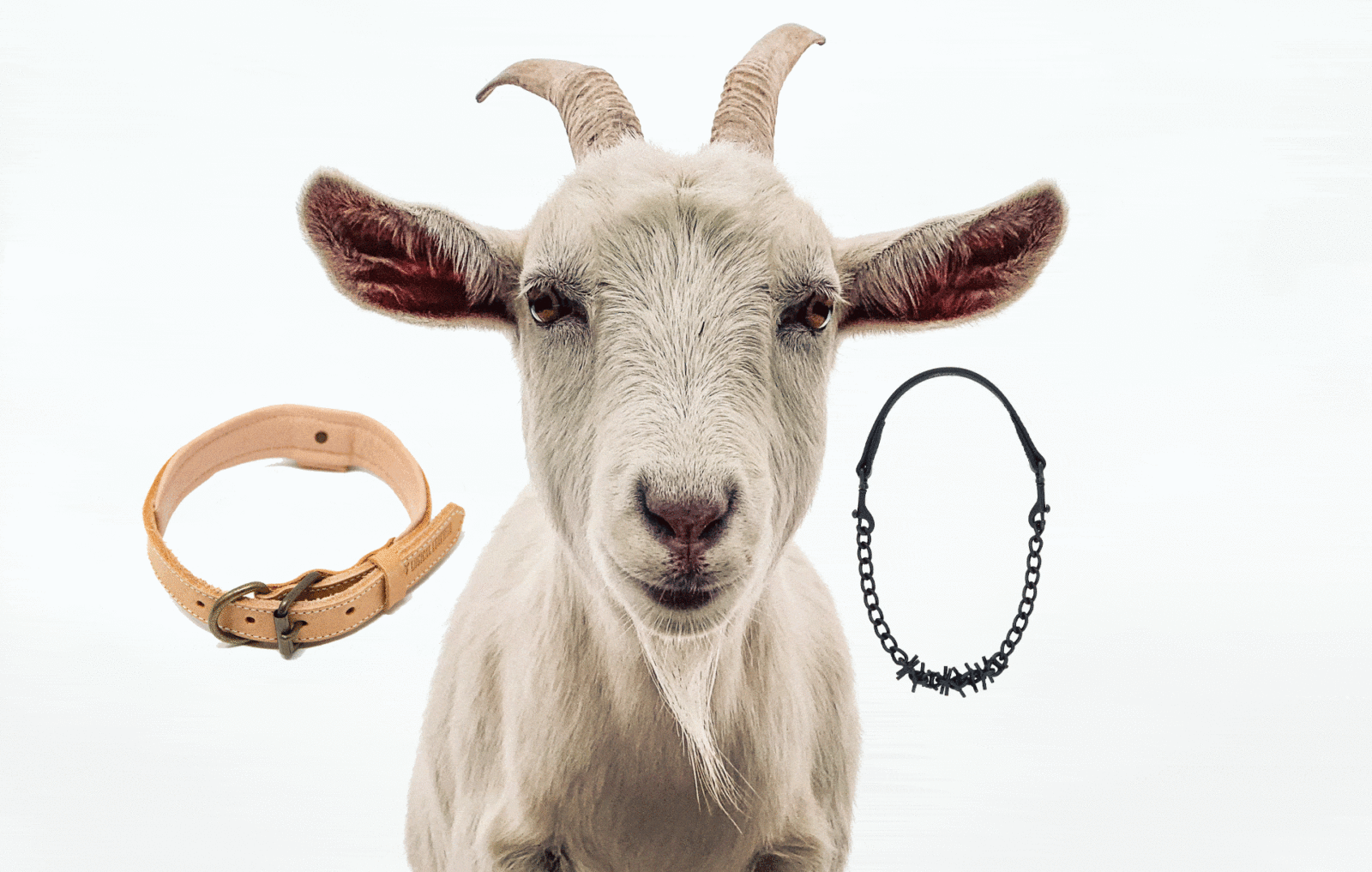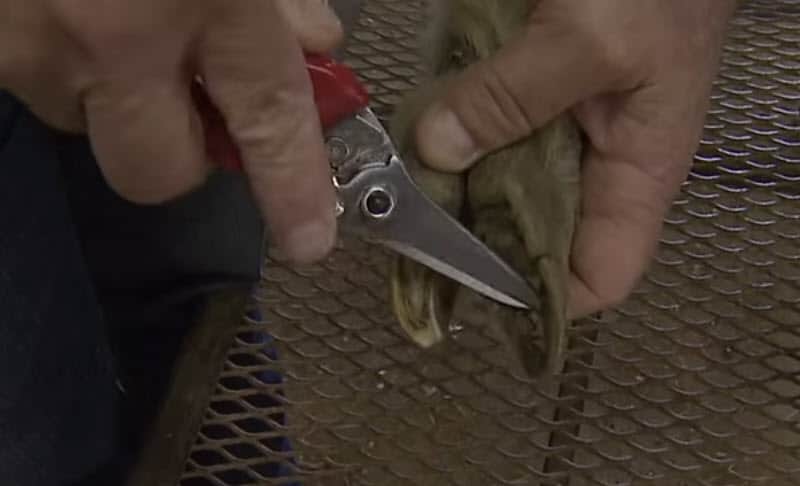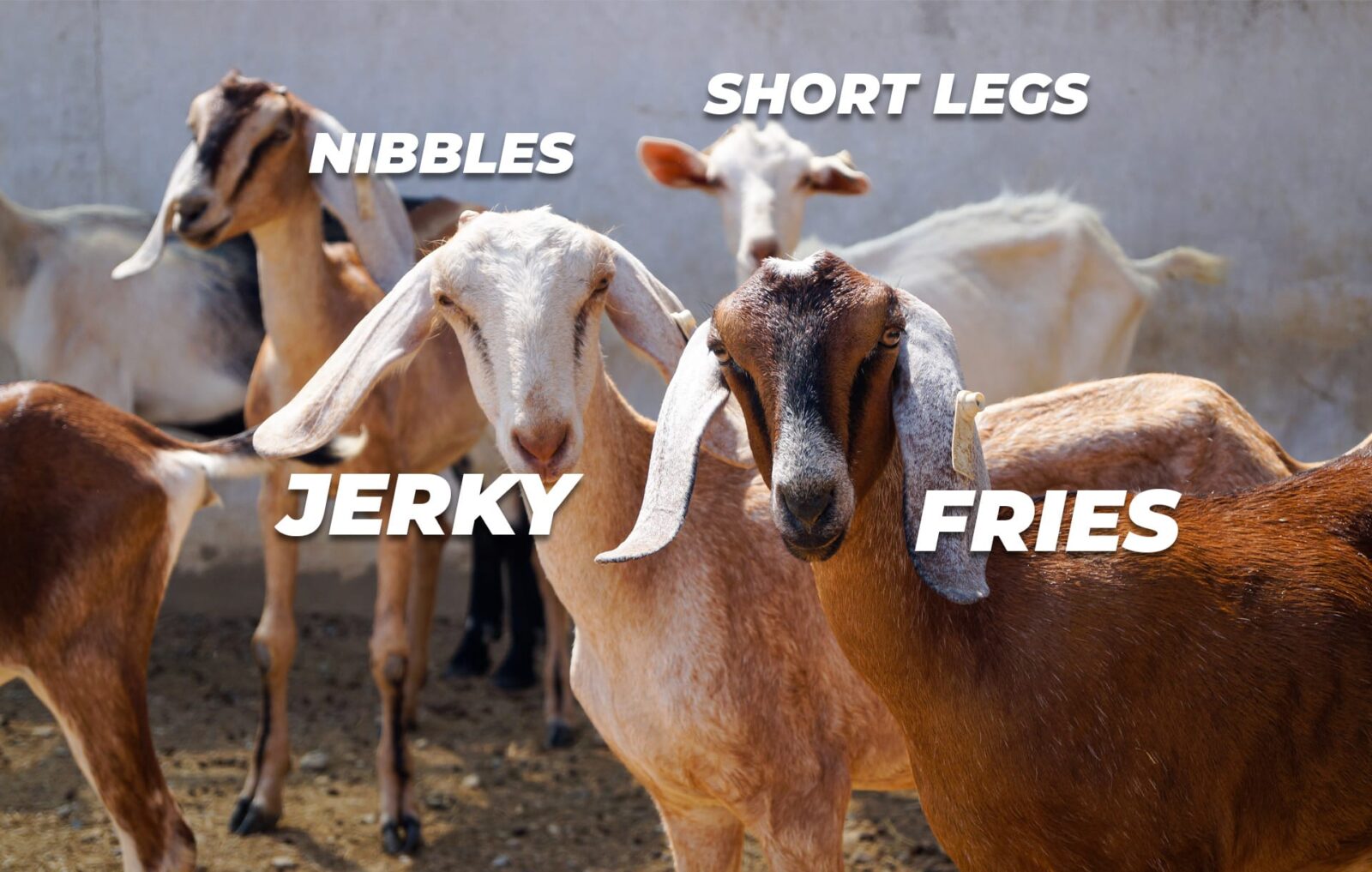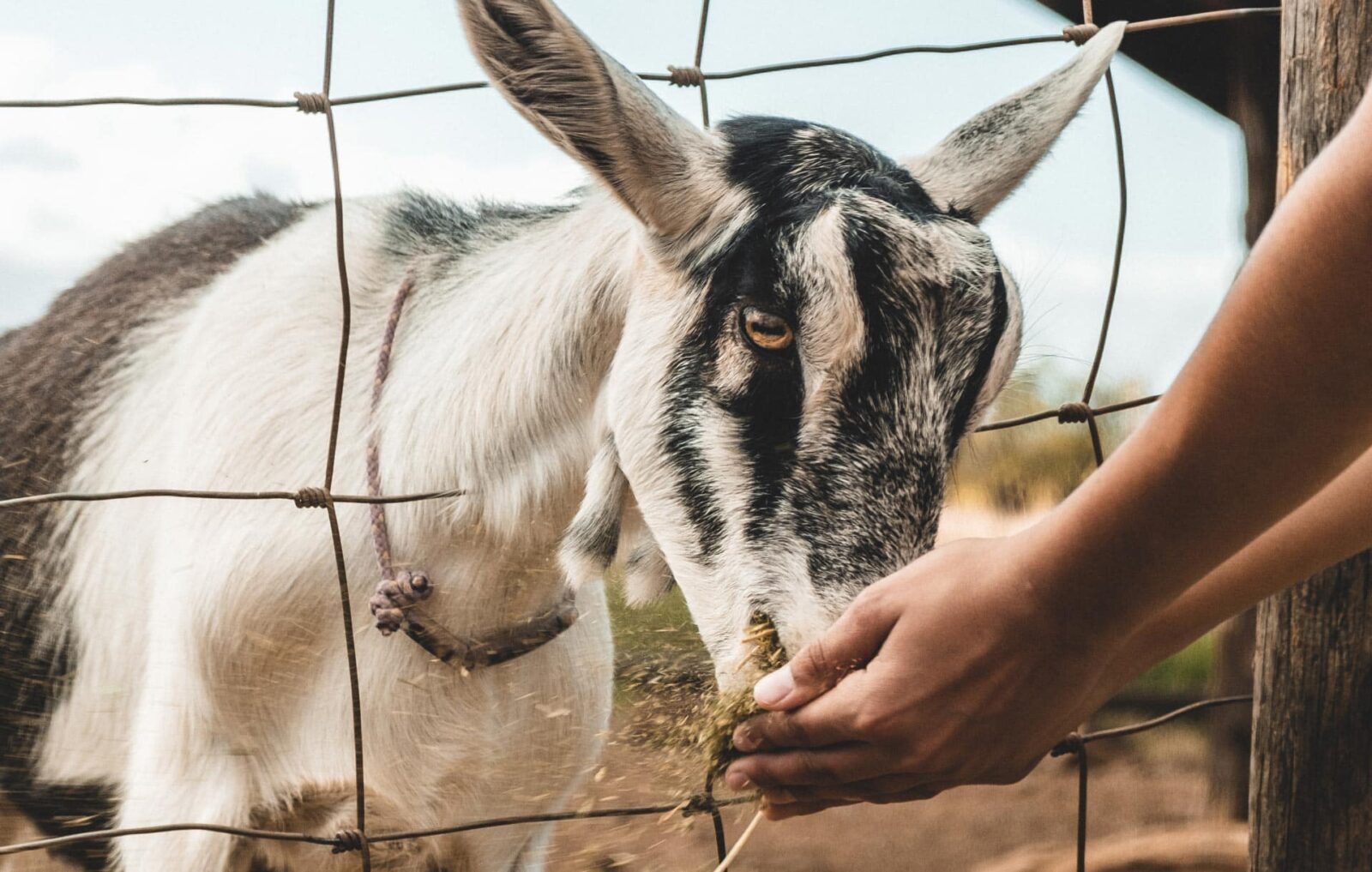I have heard lots of goat owners suggest that if there is no need to show off their goats, then they don’t see reasons to give them exclusive care and training. And it’s also true for lots of other people too. However, collars are supposed to be part of every goat’s early life. Using a beautiful collar gives you an avenue to show off your goats of course, but it also helps you play your part as a goat owner effectively.
It doesn’t matter if your goats are dairy goats or they aren’t, your goats might sometimes need to be milked after kidding and a collar makes it even easier for you – and the goat of course. This is because as gentle as your goats appear to be, they can sometimes be resistant and stubborn.
Goats sometimes also need to be moved away from the herd and isolated for their well-being. In this instance, using a collar can be most helpful. Collars are not only really helpful when it comes to rearing a goat, they are almost necessary, something you should not sideline as a goat owner.
Why Do Goats Need Collars?
Just like dogs, domesticated goats wear collars too, for a lot of reasons.
- Goat collars help you to easily identify a particular goat.
- It makes it convenient for you and your goat if you want to take your goat out for a walk.
- Goat collars give you greater control over a goat’s head than when letting the animal-free.
- It makes it convenient, easier and faster for you when you’re milking your goat.
The need for a collar for your goats cannot be overemphasized. If you want to operate successfully as a goat owner especially in its early years, I usually advise the use of a collar
Types Of Goat Collars
Whenever I have the opportunity to talk to goat owners about goat collars, I get to hear almost the same questions frequently, “what collars do I wear for my goat?”, “Will my goats get wounded if the collar is too tight?”, “How do I determine the right size of my goat’s collar?”
I always ask them to put a lot into consideration. When choosing a collar, a lot comes into play, the size of your goat’s head, the durability of the collar, the type of your goat, and even your preference and capability. There are lots of goat collars available for you, in types and colors.
Chain Goat Collars

The chain link will break if a goat gets entangled, one of the most important safety features for any goat grazing openly. The chain collar is not as big as the cattle chain but usually comes along with extra chains just in case you need to lengthen any chain to fit your goat perfectly. These chain collars are also called breakaway goat collars. This is because they are not usually used for tying down or restraining goats, but are a tremendous means of marking individual goats or groups of goats who may need special care, feeding, attention, or isolation.
One chain goat collar I would personally recommend is the Weaver Leather Livestock Brahma Collar. This collar is flexible, easy to use, and comfortable. It is very perfect for grooming your goats at home. Another thing is that it is made of flexible material that makes it perfect for you to handle, especially if you’re a newbie.
Pros
- Weather-resistant.
- The handle is simple to clean. Nickel-plated regular chain
- The length is adjustable to fit your goat’s neck.
- Does not accumulate odor or smell.
Cons
- Could cause strangling.
- The metal could deteriorate and cause skin problems for the goat.
The Nylon Goat Collar
The nylon goat collar is made of nylon. It is very suitable for goats that are not chaotic or sloppy and have proper disposition. An example is a mellow goat. Nylon collars are awesomely safe and comfortable and convenient for goats.
Pros
- Very safe for kids
- Allows comfort for the goat.
- They come in different colors which allows you to easily identify goats.
- Durable and long-lasting.
Cons
- Other goats can chew the collar off another goat.
- Can be sweaty and suffocating for a goat if too tight.
Which Nylon Product Is Best For Your Goat?
There are lots of nylon products out there and this can pose a problem for you when deciding which to go with. One of my favorite nylon goat collars is the nylon goat collar. This collar is designed to fit goats with a neck of 12″ – 15″. It is made up of very durable and stylish nylon with a large duty metal clamp.
Furthermore, this goat collar is made of soft, durable, 2-ply, and quality nylon, with 3-4 inches in width. The long-lasting material is capable of serving you and your goats for long periods. This goat nylon collar comes with a powerful metal clamp and hardware. Nylon collar with metal clamp provides a precise fixation.
Pros
- The collars are comfortable and lightweight.
- Easy to clean.
- Long-lasting and durable.
- Comfortable for tie-outs.
- Does not easily fade.
Cons
- Not very suitable for a herd as other goats in the herd can chew it off.
Leather Goat Collars
Although a little bit similar to the nylon collar, the leather collar is different from the one that is usually used for stubborn and tough goats. Leather collars are incredibly reliable, strong, solid, and durable. They are known to withstand the test of time. They’re also very safe and comfortable.
It is advisable to use Italian leather for leather collars. This is because it is very soft. Some leather collars are also padded, this further prevents the leather from digging into the goats’ neck and keeps the goats comfortable.
For your leather goat collar, I recommend the logical deluxe goat collar. It is a full-grain collar with the main strap of each collar handcrafted from the full thickness of the hide and premium hardware. This collar has a super soft padded sheepskin leather lining that helps to reduce irritation and provides a comfortable fit for your goats. It is very durable leather and can easily be cleaned.
Pros
- Less susceptible to stretching, rolling or shredding.
- Repels odor and smell.
- Comfortable and flexible for goats.
- Comes in different attractive colors.
- Options of lengths and adaptable for different breeds
- Comes with a time guarantee and can be replaced in case of untimely wear or tear.
Cons
- Other goats present in the herd can chew on the collar, and it’s hard for leather to resist extended biting and chewing.
- The ring on the collar can snap and break if too much force is applied.
Reflective Goat Collars
Reflective goat collars are not just perfect, they are best for Goats that are left out to wander about or openly graze for themselves. A report carried out by 25 New England schools researchers shows that over 6 million animals (including goats) are sadly run over by cars each year. Lots of car crashes are said to account for deaths of wildlife too. This is very tragic. The awful truth is that a lot of these deaths could have been impeded or avoided.
One of the simplest ways for you to safeguard your goat is to make use of a reflective collar. At night, a car’s headlights swerving onto the highway will bounce off your goat’s collar. The reflective material will help your goat shine dazzlingly. The fabric used for reflective collars picks up cars’ headlights, streetlights, and any supplementary lighting.
Reflective collars on goats are perfect and most suitable for night runs or open grazing. This gives the goat augmented protection. The reflective collars will also enable you to retrieve your goats when they get lost because it will be much simpler to sight them while you search.
Which Reflective Collar Is Right For Your Goat?
There is a wide spectrum of reflective collars on-demand and goat experts inform that purchasing one that is strong and won’t slip off is a necessity. This is because, if it slips off, the whole purpose of using a reflective collar becomes vetoed.
Usually, different reflective collars are made from different fabrics, and not every reflective collar is the same. It is important for you that you get your goat a collar that will last longer and is seamed with a reflective fabric that gives you an avenue to sight them from long distances.
Timos reflective goat collar remains one of the best goat collars on the market. The collar is made of nylon with padded neoprene rubber material, which is soft, elastic, shockproof, and impermeable. It has two lines of reflective threads that glow in the dark when headlights or a flashlight shines on your goat. This protects your goat at night. It also has an easy-to-use buckle, which is equipped with premium ABS materials, and adequate resilience to control the strong goat breeds. It is also adjustable and comes in different colors.
Pros
- Gives your goats maximum visibility.
- Allows for an added layer of protection for your goat
- Gives your goat safety
- The different colors available allows for easy identification of goats.
- Long-lasting and durable.
- Washable
- Adjustable to fit your goat’s size.
- Comfortable and hygienic for your goats
- Comes in varieties.
- Comes with a money-back guarantee.
Cons
- This reflective collar is not very suitable for harnessing.
Martingale Collars
Martingale collars are safer than choke chains or prong collars. When used with a leash or with your hand, the martingale collar tightens when your goat pulls and loosens once it stops pulling. This keeps your goat safe and in check. The martingale collar also gives you greater control over your goat by stopping it from jumping or slipping out and breaking away.
The Martingale goat collar is wonderful for movement and designed for gentle control. A quick pull gets a goat’s awareness without the uneasy, dangerous choking experienced with a chain collar. The tough, resilient YKK plastic buckle also keeps the goat safe and allows for gentle, trouble-free collar removal.
Pros
- Safer than the chain collar.
- Easy for goat’s control
- Prevents the goat from slipping or escaping.
- Custom-fit is perfect for kid goats.
- Safe and does not cause matting and bald spots.
Cons
- Not recommended for tie-out use or during open grazing.
Tips For Buying the Best Goat Collar For Your Herd
Now that you understand the importance of goat collars and the different types of goat collars, you’re probably wondering how to know what’s best? And that’s one question that continues to probe us as goat owners. “How Do You Know What’s Best for Your goat?”, “or for the whole herd?”. ” What if your herd is made up of different goats?”
Here’s a guide to help you through. Whether you are a first-time goat owner or have spent many years with, this guide will be very helpful for you.
Goat’s Collar Size
A small goat’s collar size is usually 3/4″ or 18mm wide and fits a goat’s neck up to 18 inches around. It is also adequate for Pygmy Goats and other minor breeds. A medium goat’s collar is about 1 inch or 25mm wide and fits a goat’s neck up to 18 inches or 45cm to 22 inches or 55cm around. It is also very suitable for medium-sized varieties.
What If You Don’t Know The Exact Sizes To Buy?
One of the best ways to measure the goat’s neck yourself is by using a flexible measuring tape. Here are the steps to take:
- Place the rope or measuring tape around your goat’s neck.
- Take note of the measurement where measuring tape crosses.
- Add about one or two inches depending on the size of your goat’s neck.
- Use a size graph to determine the right collar size for your goat.
Do not measure existing goat collars. Collars are somewhat different when it comes to sizes. This is to say that measuring the current collar of your goat is unlikely to give you the right size for your goat’s neck.
Your goat is entitled to have a collar that is safe and comfortable. It is also important to measure their actual neck to ensure the collar fits right. When selecting collar sizes for your goats, it is important not to let the collar be too loose or too tight. Ensure it fits properly.
When a goat’s Collar is Too Loose:
- It can become a security risk.
- Your goat can slide out and run away or get harmed.
- It can get twisted on an object and cause your goat to choke.
When a goat’s collar is too tight:
- Your goat’s lungs and airways will get restricted. This can cause a decrease in blood flow and choke your goat or make the goat feel uncomfortable.
- Can cause pain and skin scuffing for your goat.
- Can cause hair loss and skin loss around the goat’s neck.
How Tight Should a Goat’s Collar be?
In fact, just right enough to allow you to fit two fingers in between the goat’s collar and the goat’s neck. Apply this two-finger rule to ensure that there is enough area between the goats’ collar and their neck. Adjust if need be.
Ensure it is Water Resistant
Water-resistant collars are a great choice for goats who are likely to get wet. They usually do not require any additional water for rinsing and are also invulnerable to fluids and chemicals.
Perhaps you might notice that your goat’s collar is becoming much dirtier, taking a longer time than usual to dry off, and giving off a stale odor. Water-resistant collars are the best alternative for goats that enjoy spending time grazing and could get themselves muddy. This is because the water-resistant goat collars’ fabric is protected from dampness, moistness, and stinking odors.
Tips For Choosing The Perfect Water Resistant Goat Collars
- Ensure the goat’s neck is correctly and properly measured. Take the two-finger rule into consideration.
- What design would you like? Some goat collars come with extra features like the ability to add name or herd tags, so they depend on your everyday usage.
- When it comes to choosing the fabric, waterproof goat collars frequently make synthetic biothane, water-resistant nylon. It also ensures that they are lightweight, easy to clean up, and water-resistant which is the ultimate goal.
- Ensure it’s Durable.
Why You Need A Water-Resistant Collar For Your Herd.
- They last much longer.
- Very durable.
- More comfortable.
- Prevents odor and coloring.
- Do not fade easily
- Provide a much better grip for your herd’s neck.
Ensure it is Odor Resistant
When choosing a collar for your goat, Ensure It Is odor resistant. This is because odor-resistant goat collars do not harbor bacteria or germs and it is healthy for your herd especially when a member of the herd is kidding or milking.
When choosing a collar for your goat, choosing the right material is very important. Ensure you choose materials with less puffy fabrics, also, avoid stuffy materials or materials that are likely to cause heat.
Is a Collar Or Halter Better For Goats?
It depends on the purpose for use. A collar is usually worn around the goats’ neck. A halter is a different sort of collar with a leash that goes over the goat’s nose and another leash that goes over its neck, just behind its ears. The strap clasps under its jaw to a noose that’s fastened to the nose leash. When the goat begins to pull, the halter causes the goat’s nose to be turned back towards you, which makes it physically hard for the goat to continue pulling. Further, the head halter doesn’t cause any harm and functions much better to prevent a goat from pulling.
Using a halter for a goat instead of a collar makes it easier to control and manage any goat, no matter how stubborn. But if you just need to keep your goat safe or want to milk the goat, a collar is usually more advisable.
Why Put A Bell On A Goat?
- Bells are used to keep track of goats while they are grazing.
- They also assist in keeping predators away.
- Goats can become less stubborn due to the soft tinkling of bells.
- It allows a stray Goat to locate the herd easily.
Goat Collar With Bell
Some of the Goat collars available on the market come along with a bell. However, if a bell is absent, you can simply fix one yourself.
Goat Collars With Name Tags
Various goat collars let you insert their goat names for each goat. It allows for proper and easy identification for your goat when the need arises.
In A Nutshell
A goat collar is necessary. As a matter of fact, its necessity cannot be overemphasized. Using a collar for your herd saves you a lot of street and fatigue that could be caused by goat raising.
















Leave a Reply